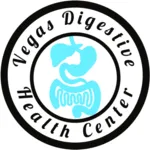What is Gastroesophageal Reflux Disease (GERD)?
Gastroesophageal Reflux Disease (GERD) is a condition that occurs when the contents in your stomach travel upward into your esophagus (food pipe). This can occur when the valve between the stomach and esophagus, known as the lower esophageal sphincter (LES), does not close properly allowing acid and other digestive juices to reflux upward.
What are some of the symptoms of GERD?
Some of the common symptoms of GERD include heartburn, regurgitation, and occasional nausea after eating. Other symptoms of GERD include trouble swallowing (dysphagia) or painful swallowing (odynophagia), upper abdominal pain, chest pain, persistent cough, sore throat, hoarseness or voice changes, or a sensation of a lump in the throat (globus sensation).
How is GERD diagnosed?
For mild, classic symptoms of GERD, your doctor may suggest to you a trial of medication. If your symptoms do not improve or if you have symptoms that may indicate a more serious problem, your doctor may perform and upper endoscopy to examine the inside lining of your upper gastrointestinal tract (see Understanding Upper Endoscopy). Other tests that maybe recommended include pH testing to measure acid content and esophageal manometry to measure esophagus motility and pressure.
How is GERD treated?
Diet and lifestyle modifications can be used to reduce or eliminate the symptoms of GERD. Your doctor may also prescribe you medications. Rarely, anti-reflux surgery may be an option for some people.

